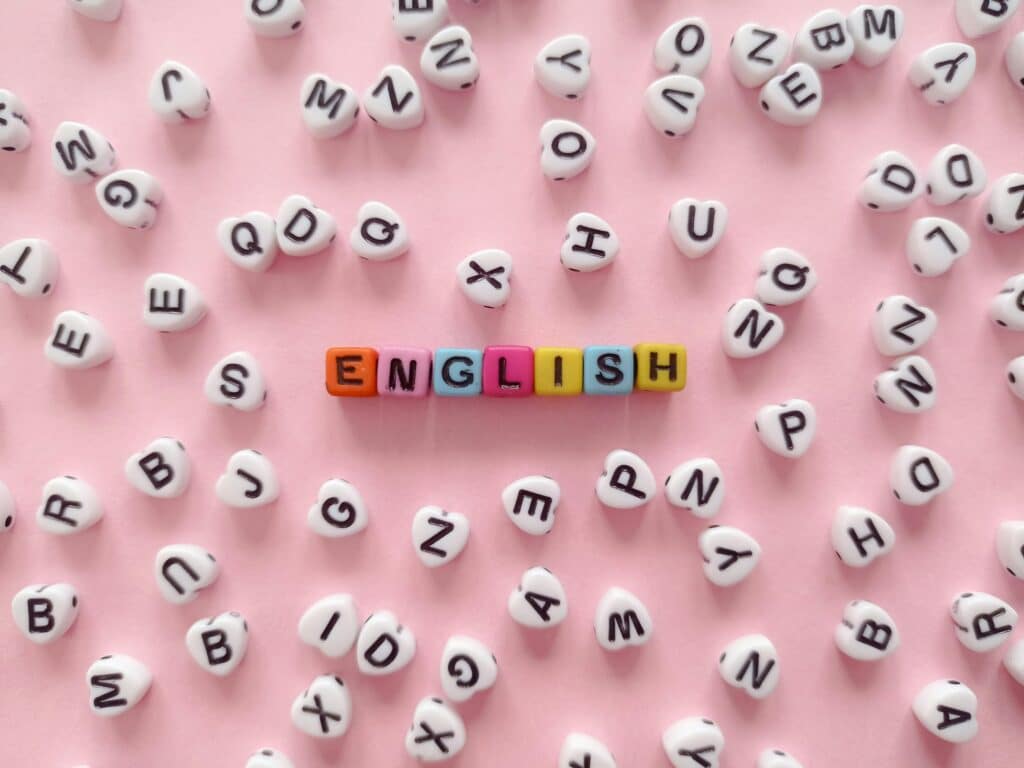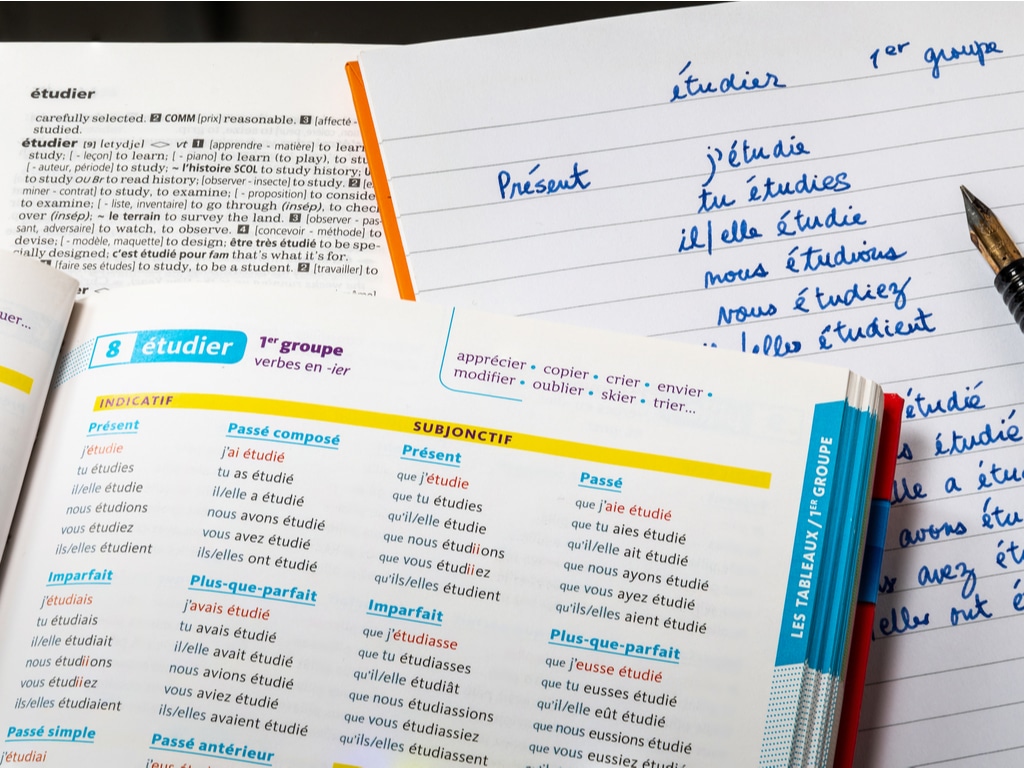
The 16 Most Useful Languages to Learn in 2024
While it’s fun and exciting to learn any language, not all languages are equally useful for everyone.
So if you’re wondering what language should you start learning, we will introduce you to the 16 most useful languages to learn, based on how many people speak them, the unique benefits of learning each, and much more.
In the list below, information about which languages are most widely spoken comes from Ethnologue.
Unless otherwise noted, information on the sizes of different economies comes from the International Monetary Fund’s World Economic Outlook Database and CIA World Factbook.
Information on the U.S.’s top trading partners comes from the U.S. Census Bureau.
Contents
- 1. English
- 2. Arabic
- 3. Mandarin Chinese
- 4. French
- 5. German
- 6. Hindustani
- 7. Italian
- 8. Japanese
- 9. Portuguese
- 10. Russian
- 11. Spanish
- 12. Korean
- 13. Indonesian
- 14. Finnish
- 15. Dutch
- 16. Vietnamese
- What Makes a Language “Useful?”
- How to Get Started Learning Your New Language
- And One More Thing...
Download: This blog post is available as a convenient and portable PDF that you can take anywhere. Click here to get a copy. (Download)
1. English
Speakers: 1.5 billion people
There are approximately 1.5 billion English speakers, which is 15% of the world population.
There are so many enriching thrills to be had in speaking other languages, but this is the single most practical language you can speak.
That said, consider that the other two-thirds of the planet don’t speak English.
You’ll have more interesting human communication adventures if you can master one or more of the other major world languages below.
2. Arabic
Speakers: 274 million people
If you want to learn a language that hundreds of millions of people speak and can help set you apart from other job applicants, look no further than Arabic.
Arabic is the 6th most widely spoken language in the world.
It’s the official language in over 20 countries, so there are plenty of places where your Arabic skills will come in handy. Arabic is also an official language of the U.N.
Additionally, Arabic skills are in hot demand.
Arabic has been identified as a “critical language” for national security. This means learners can apply for the Critical Language Scholarship Program.
But beyond government jobs, Arabic speakers can also find work in international NGOs, journalism and more.
Since Arabic is widely spoken in many of the world’s wealthiest nations, Arabic speakers might also find work in science, engineering, architecture, business and more.
Mutual intelligibility—the degree to which speakers of one language/dialect can understand speakers of another—varies among the dialects of Arabic.
While Arabic includes several dialects that aren’t mutually intelligible, studying Arabic can open doors to learning whatever dialects you hope to specialize in.
FluentU takes authentic videos—like music videos, movie trailers, news and inspiring talks—and turns them into personalized language learning lessons.
You can try FluentU for free for 2 weeks. Check out the website or download the iOS app or Android app.
P.S. Click here to take advantage of our current sale! (Expires at the end of this month.)
3. Mandarin Chinese
Speakers: 1.138 billion speakers
Mandarin Chinese is the second most widely spoken language globally.
While other dialects that aren’t always mutually intelligible are often grouped as “Chinese,” Mandarin Chinese alone has over a billion speakers worldwide.
If that’s not enough to convince you of its usefulness, Chinese is also one of the six official languages of the U.N.
And since China has a huge population, it also has enormous buying power.
For anyone who learns Chinese, the booming Chinese economy can be a boon in their career.
American Express lists Mandarin Chinese as one of the most essential languages for business. China has the second largest economy in the world, so international business positions are likely to demand Chinese skills more and more, opening up job opportunities.
But business isn’t the only career option for Chinese speakers!
There’s also a good deal of demand for native English speakers to teach in China. Speaking Chinese can help set applicants apart when trying to snag a position.
4. French
Speakers: 309.8 million speakers
French is the 5th most spoken language.
Plus, French isn’t only an official language of the U.N.—it’s also the official language of 29 countries on five continents.
But don’t think French is spoken in only 29 countries!
The Organsation internationale de la Francophonie—an international organization of countries where French is widely spoken—has 84 member states.
Perhaps because it’s so widespread, French is also commonly used in international nonprofits and diplomacy, so it’s particularly useful for those wanting a career in the nonprofit or diplomatic realms or development.
French is useful in the business world as well, since France has the seventh largest economy.
And lastly, French is also particularly useful in an academic context. In particular, since French has long been a major world player, learning French may be beneficial to aspiring historians.
5. German
Speakers: 134.6 million speakers
German is the 12th most common language in the world.
Not only is German the most widely spoken native language in the European Union, but Germany is also strong economically.
It has the fourth largest economy. And the U.S. Census Bureau reports that Germany is the fifth top trading partner of the U.S.
This creates business opportunities for those who speak German.
6. Hindustani
Speakers: 840.7 million speakers
Sometimes called Hindi-Urdu, Hindustani refers to the mutually intelligible languages of Hindi and Urdu.
These languages are grouped due to history, grammar and vocabulary, though they can also be classified separately due to their different scripts and cultural associations.
Hindustani is spoken in Northern India and Pakistan.
There are over 609 million native speakers of Hindi. And 231.7 million people speak Urdu natively.
If Hindustani isn’t on your radar yet, it should be—especially if you’re learning a new language for professional regions.
India is projected to have the world’s fastest growing large-scale economy, so learning Hindustani can put you ahead of the curve in your industry.
7. Italian
Speakers: 61.8 million speakers
While it may not be as widely spoken as other languages on this list, Italian can still be useful.
Italy has long been associated with art and culture.
Ancient Rome significantly shaped Western culture and Italy was the epicenter of the Renaissance. While the Latin language of early Romans may be dead, the Italian language was based on Latin and was used in many Renaissance texts.
So if you work in the humanities, speaking Italian will give you some serious cred by allowing you to conduct research with original, authentic texts.
Plus, speaking Italian would allow you to enjoy a plethora of contemporary research on these eras and learn more about significant sites and history, as Italy has over 50 UNESCO World Heritage sites.
Because of Italy’s strong association with culture, Italian is particularly useful for anyone interested in art, fashion, food, history and music.
8. Japanese
Speakers: 125.6 million speakers
Learning Japanese is helpful for so much more than just watching your favorite anime (but that’s cool, too)!
125.6 million people speak Japanese natively, and Japan is a business hub.
The International Monetary Fund reports that Japan has the third largest economy. Plus, Japan is the fourth top trading partner of the U.S.
That means anyone considering a career in international business might benefit from brushing up on their Japanese.
Japanese would also benefit technology aficionados, whether they want to work in the field or stay up on the latest inventions.
Tech giants like Canon, Sony, Panasonic, Nintendo, Toshiba and so many more started in Japan.
Some of the most innovative products and ideas—like mind-reading AI—are still coming out of Japan, so speaking Japanese will allow you to read about these products before they ever hit American markets.
9. Portuguese
Speakers: 263.6 million speakers
Portuguese is the eight most common language.
Portuguese is also spoken in geographically diverse regions. It has official status in nine countries in Europe, South America, Africa and Asia.
Plus, Portuguese has plenty of professional uses. Portuguese is included on the American Express list of the most essential languages for business, which makes sense considering Brazil has the 12th largest economy.
Additionally, Brazil is home to 60% of the Amazon Basin, so biologists and other scientists may benefit from speaking Portuguese to study the region.
10. Russian
Speakers: 255 million speakers
Learning Russian has layers of benefits and advantages—like a matryoshka doll of opportunities.
It is the ninth most common language in the world. Russian is also one of the six official languages of the U.N.
Because of Soviet influence in the region, Russian is common throughout Eastern Europe, the Baltic states, the Caucasus and Central Asia.
This makes Russian a particularly useful language for anyone interested in a huge span of Europe and Asia.
While not everyone will speak Russian, many people will understand it to some extent. Since there are dozens of native languages in the region and you’re unlikely to be able to learn all of them, knowing Russian can provide you with a valuable tool to communicate across cultures.
Russian is also useful to professionals across multiple fields.
American Express includes Russian on the list of essential languages for business. Plus, Russia has the world’s ninth largest economy.
Due to Russia’s size and power, Russian is also important in international politics.
And since Russian literature is often considered among the finest, it’s also a valuable language for avid readers and literary scholars.
11. Spanish
Speakers: 559.1 million speakers
Spanish is the fourth most widely spoken language.
Spanish has official status in 20 countries in North America, South America, Europe and Africa, and is also an official language of the U.N.
Plus, if you’re looking to learn an essential language for business, American Express puts Spanish on its list. Spanish-speaking countries also do a lot of business with the U.S., and Mexico is the country’s second top trading partner.
But beyond that, Spanish is a particularly useful language for Americans to learn because it’s widely spoken in the U.S.
About 40.7 million people speak Spanish at home in the U.S.
So even if you don’t intend to travel or work in an international setting, Spanish may very well be useful in your day-to-day life.
Whether you’re using Spanish in the business world, the medical field or you’re just chatting with someone in line at the grocery store, in many parts of the U.S., you won’t lack opportunities to use your Spanish skills.
12. Korean
Speakers: 80 million speakers
Korean is not just the official language of South Korea but also holds significant sway in North Korea.
Its growing influence extends beyond its geographic region, with Korea being a powerhouse in technology, entertainment, and business.
Learning Korean opens doors to a rich cultural tapestry, from K-pop sensations to globally renowned cuisine.
Moreover, Korea’s booming economy presents lucrative career opportunities, especially in sectors like technology, manufacturing, and finance.
As the world embraces Korean pop culture and business ventures, proficiency in Korean becomes a valuable asset for global communication and professional growth.
13. Indonesian
Speakers: 270 million speakers
Indonesian, spoken predominantly in Indonesia, emerges as a linguistic gem for those eyeing Southeast Asia.
As the largest economy in the region and a melting pot of cultures, Indonesia offers a diverse tapestry of opportunities for language learners.
Whether you’re delving into the realms of tourism, trade, or diplomacy, proficiency in Indonesian facilitates seamless interaction within the archipelago nation and beyond.
With its status as the lingua franca of Southeast Asia, learning Indonesian cam make you navigate cultural nuances and create meaningful connections in this dynamic corner of the world.
14. Finnish
Speakers: 5.5 million speakers
Finnish may seem modest in numbers but boasts unique attributes that render it a valuable linguistic asset.
Positioned in the heart of Northern Europe, Finland is celebrated for its excellence in education, technology, and innovation.
Learning Finnish not only unlocks access to this vibrant society but also offers insights into the Finnish way of life, characterized by efficiency, sustainability, and design.
Moreover, as a member of the Nordic Council and the European Union, Finland plays a significant role in regional affairs, so learning Finnish is an asset for those interested in European politics, commerce, or cultural exchange.
15. Dutch
Speakers: 24 million speakers
Dutch, spoken in the Netherlands and Belgium, stands as a gateway to the vibrant cultures and economies of the Low Countries.
With Dutch being the official language of institutions such as the European Union and NATO, mastering this language opens doors to lots of career opportunities in international diplomacy, trade, and governance.
Furthermore, the Netherlands’ robust economy, known for its innovation and global trade links, provides a fertile ground for Dutch speakers seeking to make their mark in fields ranging from technology and finance to arts and culture.
16. Vietnamese
Speakers: 76 million speakers
Vietnamese, with predominantly speakers in Vietnam, emerges as a language brimming with potential in the Southeast Asian landscape.
Vietnam’s rapid economic growth, coupled with its rich cultural heritage, makes Vietnamese a valuable asset for those seeking opportunities in trade, tourism, or cultural exchange.
As Vietnam positions itself as a key player in the ASEAN market and a hub for manufacturing and technology, proficiency in Vietnamese equips individuals with a competitive edge in navigating this dynamic region’s business landscape.
Moreover, learning the nuances of the Vietnamese language offers insights into the country’s history, literature, and traditions, fostering deeper cross-cultural understanding and collaboration in an increasingly interconnected world.
What Makes a Language “Useful?”
The “usefulness” of a language depends on several factors, including personal goals and preferences.
Here are some key things to consider when deciding which language is the most useful for you.
Number of Speakers
The most common languages are often the most useful because they’re widely spoken, and learning a language that many people speak opens up more possibilities to use it.
However, some languages don’t have as many native speakers but are frequently used internationally or professionally.
For instance, the official U.N. languages are often used in political, business and nonprofit contexts.
Additionally, it’s essential to consider what second languages people worldwide are learning. For example, French is a widely spoken second language, increasing its total speakers massively beyond the number of native speakers.
Geographic Region
European languages are frequently popular due to travel and business interests. However, each geographic region has a different appeal for various reasons.
That being said, it’s essential to consider your own interests and goals when assessing the geographic region where a language is spoken.
For example, even if a language is widely spoken in a particular region but you have no intention of traveling there, this language will be less beneficial for you than a language from a place you hope to visit often.
If you practically live on the beach and hate cold whether, Spanish will probably be much more beneficial than Norwegian.
Versatility
Sometimes, you don’t know what you’ll want to use a language for. In that case, you’ll want to pay particular attention to a language’s versatility.
Widely spoken languages and languages spoken in the U.S. are usually the most versatile because you can use them at home or abroad.
Languages like Mandarin Chinese or French are versatile because they’re used in many professional fields, from business to politics to art.
Career
Language skills are highly desirable in almost any career field. However, which language is most valuable is primarily based on the specific industry.
For example, if you work in the U.S., Spanish will come in handy in any professional space (medicine, law, customer service, education, etc.).
However, if you work in international business, you might also benefit from Mandarin, Japanese, German, etc.
Each career field is unique, so the best way to determine what language will be most beneficial for your career is to look at job listings.
Find postings of jobs that look ideal to you.
What language skills do these jobs require?
Developing these skills will help ensure you’re qualified for the positions you want.
Usability
“Usability” refers to how often you’ll be speaking the language.
Mandarin Chinese might be widely spoken in your field, but if you only use it twice a year at industry conferences, it has less usability.
If you have travel plans, you might choose a language you’ll use abroad. If you have family members who speak another language, this would also increase its usability for you.
How to Get Started Learning Your New Language
- Set learning goals. After deciding which language to learn, write out a few goals. Do you want to learn it to fluency? Why do you want to learn this language? What level do you want to reach by the end of three months?
- Download an app (or two). Grab an app to help you learn the most common words and phrases, and find another resource to start learning grammar. Check out our post on the best language learning apps here.
- Study your language for 10-15 minutes a day. It doesn’t have to be much, but a little bit of practice everyday is better than one or two long study sessions a week. Many apps ask if you’d like to receive notifications that remind you to study, so you can turn those features on. Or, identify opportunities throughout your day for practice, like your work commute, lunch break or while drinking your morning coffee.
- Focus on immersion. Immersive learning is the fastest way to get started in any language. If you don’t live where your target language is spoken, there are language learning programs that can help you achieve immersion from home.
If you want to learn a type of magic more practical than herbology and potions combined, give these 16 useful languages a try!
Download: This blog post is available as a convenient and portable PDF that you can take anywhere. Click here to get a copy. (Download)
And One More Thing...
If you dig the idea of learning on your own time from the comfort of your smart device with real-life authentic language content, you'll love using FluentU.
With FluentU, you'll learn real languages—as they're spoken by native speakers. FluentU has a wide variety of videos as you can see here:
FluentU has interactive captions that let you tap on any word to see an image, definition, audio and useful examples. Now native language content is within reach with interactive transcripts.
Didn't catch something? Go back and listen again. Missed a word? Hover your mouse over the subtitles to instantly view definitions.
You can learn all the vocabulary in any video with FluentU's "learn mode." Swipe left or right to see more examples for the word you’re learning.
And FluentU always keeps track of vocabulary that you’re learning. It gives you extra practice with difficult words—and reminds you when it’s time to review what you’ve learned. You get a truly personalized experience.
Start using the FluentU website on your computer or tablet or, better yet, download the FluentU app from the iTunes or Google Play store. Click here to take advantage of our current sale! (Expires at the end of this month.)






















